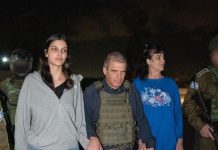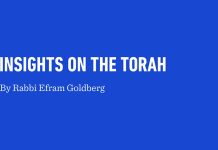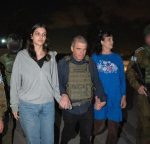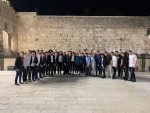
Book Review: The Depths of Torah Thought: How We Must Respond to the Tragedy Facing Our Nation
By Rabbi Mendy Feder, $21.95
Review by Rabbi Uri Pilichowski
It is rare to find Torah scholars that address the challenging and sometimes controversial philosophical questions facing the Jewish people today. Rabbi Mendy Feder is one of the courageous scholars who does not shy away from addressing topics that are considered controversial or even taboo by many scholars. As a successful and independent businessman and philanthropist, Rabbi Feder enjoys the freedom of writing the truth on these topics and more without hesitation.
Rabbi Feder opens his book by addressing the most sensitive topic of today: How G-d could have allowed the Simchas Torah massacre of October 7th, 2023 to occur. This is a question that is so raw that many are afraid to ask it let alone speculate on the answers. Rabbi Feder courageously answers the question, taking his readers through Torah verses, passages of the Talmud, and the teachings of early Torah scholars. The Hashkafat HaTorah do not shy away from answering difficult questions, and Rabbi Feder courageously answers them.
Rabbi Feder’s approach to the question might make certain readers uncomfortable or even accuse him of victim-blaming, but he points to the Rambam’s admonition of the Jewish people when catastrophes such as flooding, disease, or enemy attacks occur. Rambam warns the people to look inward at their sins and repent. The people must recognize their actions can directly improve the situation by meriting Divine Providence to protect them.
It is easy to make the reverse jump and assume Rabbi Feder is positing that it was the Jewish people’s sinful actions that led to the Simchas Torah massacre of October 7th, but that would be a mistaken assumption and not a position Rabbi Feder advocates in his book. Instead, he teaches the uniquely Jewish perspective of how to properly react to tragedy, through self and national introspection, repentance, and improvement. Rabbi Feder isn’t victim blaming, he’s giving a victimized nation a healthy way forward that is consistent with the Torah’s teachings.
Rabbi Feder takes his lesson a step further. Instead of teaching that the people need to improve themselves and make concrete changes in their lives, instead, he teaches that merely by recognizing that G-d’s hand is in control of events (surrounding the Jewish people) is sufficient to merit Divine Providence for the Jewish people.
This is a novel teaching, and Rabbi Feder supports his argument with a careful reading of the Rambam’s words. This teaching alone was so impressive in my mind and I was happy to have read the book just to learn this one lesson. The rest of the book offered equally impressive lessons on how the Jewish people should move forward from this and other tragedies.
I found each chapter of Rabbi Feder’s new book unique in its approach to explaining often esoteric sections of the Torah. Subjects like the red cow, the hyssop used in the taharah process, and the role of the Jewish king are all addressed in a clear manner, giving the reader an easily understandable explanation for some of the most complex areas of the Torah.
The most refreshing aspect of “The Depths of Torah Thought” (Hebrew: Amkus HaTorah) is the intellectually honest and rational approach Rabbi Feder takes to each subject. He outlines the problem in a concise fashion and offers an explanation that doesn’t require the reader to take a leap of faith to understand. Instead of demanding the reader accept certain principles, Rabbi Feder offers logical explanations that are accessible to every reader, regardless of their knowledge or familiarity with the subject matter.
I highly recommend this book for the Torah student looking to understand more of the Torah, especially difficult areas that are infrequently addressed by other works. I also recommend the student just beginning their Torah study to read this book as an introduction to Torah philosophy. Both the scholar and layperson will appreciate this book for two different reasons.
This book may also be useful for parents to find ways to speak to their children about meaningful topics when they feel stymied by their children’s lack of interest. This book brings up many interesting topics that are perfect for discussion with their children and also with guests at the Shabbos table. I highly recommend using Rabbi Feder’s sefer as a means to spark to more meaningful conversations while learning timeless lessons.
Rabbi Uri Pilichowski grew up in Fair Lawn, New Jersey and received semicha from Mevaseret Zion. He made aliyah with his family in 2014 and settled in Mitzpe Yericho where he continues to teach students via Zoom. He has taught in schools in Miami, Chicago, Atlanta, Houston and Los Angeles. He is also the director of Israel Advocacy for Southern NCSY. He teaches high school students Talmud, Jewish philosophy, Bible and Israel Advocacy. Rabbi Pilichowski is the author of three books and leads “Crossing the Line” day trips. Please visit UriPilichowski.com.















